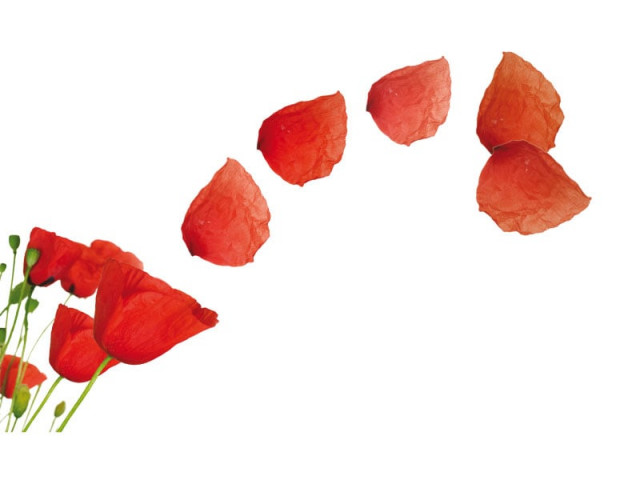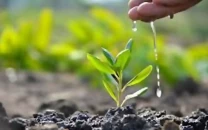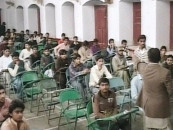$30b worth of drugs transit through Pakistan: UN report
Country is free of poppy cultivation but provides vital passage for drugs from Afghanistan, says report.

At the International Day Against Drug Abuse and Illicit Trafficking 2012, Pakistan may be free of poppy cultivation, but the country still provides a vital transit route for smuggling of drugs worth $30 billion from neighbouring Afghanistan.
Speaking at the launch of the World Drug Report 2012 on Tuesday, officials from the United Nations welcomed the decline in poppy cultivation in Pakistan. In the same breath, however, they added that the country is a major route for the smuggling of drugs cultivated in Afghanistan, primarily through Khyber-Pakhtunkhwa and Balochistan, and that drug cultivation can resurface in these areas if the Anti-Narcotics Force is not strict in its surveillance.
One-third of drugs produced in Afghanistan are smuggled to other countries via the coastal areas of Balochistan, the UN officials added.
Global numbers
The UN Office on Drugs and Crime (UNODC) released the annual report about the state of drug cultivation, production, usage and transport in New York on Tuesday.
According to the report, at least 5% of the world’s adult population, or about 230 million people, are estimated to have used an illicit drug at least once in 2010. Some $68 billion is generated globally from illicit drugs annually, and is mainly used in terrorist activities, human trafficking and the smuggling of arms.
According to the UNODC, $27 to $30 billion worth of drugs are smuggled from Afghanistan, via Pakistan, to other parts of the world annually; of this, drugs worth $1.5 billion stay in Pakistan.
Drug abuse and illicit trafficking continue to have a profoundly negative impact on development and stability across the world, the report says. Heroin, cocaine and other drugs continue to kill around 200,000 people a year, bringing misery to thousands of other peoples, insecurity and the spread of HIV, the report adds.
Drug cultivation
Global opium production amounted at 7,000 tonnes in 2011, up from the low levels of 2010 when diseases wiped out almost half of the crop yield.
Afghanistan maintained its position as the largest producer and the country’s opium production increased by 61%, from 3,600 toms in 2010 to 5,800 tonnes in 2011.
High prices and increase in demand are making opium production more attractive to farmers in South East Asia, the report says.
Poppy cultivation in South East Asia jumped 16% - from 41,000 hectares in 2010 to almost 48,000 hectares in 2011. Overall cultivation of opium doubled in South East Asia.
Externalities
Illicit drugs and related criminal networks undermine the rule of law, the report says.
Central America, for instance, faces rising levels of violence fuelled by transnational organised crime and drug trafficking. The region is now home to the highest homicide rates in the world.
Meanwhile, development in Afghanistan is being hindered by the highest rates of opiate prevalence in the world. In parts of Myanmar, farmers are trapped by food insecurity compelling them to grow poppies as a cash crop.
The challenge is also greatly testing West and Central Africa, which lies along one of the main drug trafficking routes to Europe.
Moreover, transit countries are no longer simply links in the chain of supply. About half of the cocaine trafficked through West and Central Africa now remains in the region.
Solutions
The drug, crime and corruption conventions of the UN form a solid basis for global solutions to these challenges, the report states, adding that these instruments offer a balanced approach to halt trafficking, promote viable alternatives to the farmers of cash crops, and offer drug users their health and human rights.
Published in The Express Tribune, June 27th, 2012.



















COMMENTS
Comments are moderated and generally will be posted if they are on-topic and not abusive.
For more information, please see our Comments FAQ